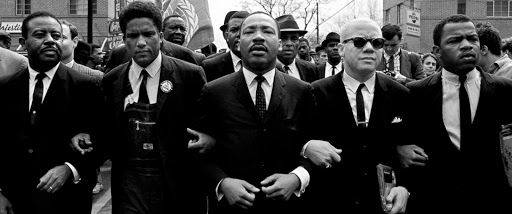
FAIR HOUSING MONTH
Overview
The Fair Housing Act prohibits discrimination in the sale, rental, lending, insurance, or other financing of dwelling places based on:
- Race
- Color
- National Origin
- Religion
- Sex (including gender identity and sexual orientation)
- Familial Status
- Disability
- Source of Income (specific to Utah)
Learn to Recognize the Signs
Housing discrimination is rarely blatant; it is often disguised with a smile and a handshake. Your Fair Housing rights are violated when you are prevented from doing any of the following activities:
- Viewing or renting an apartment
- Viewing or purchasing a home
- Applying for or securing a home loan
- Purchasing homeowners or renters insurance
Local Fair Housing Resources:
If you feel that you may have been discriminated against, Housing Stability encourages you to take appropriate action.
- Disability Law Center
The Disability Law Center is a private, non-profit organization designed by the governor as Utah’s Protection and Advocacy agency. Their mission is to enforce and strengthen laws that protect the opportunities, choices and legal rights of Utahans with disabilities. Contact the DLC at 1-800-662-9080 or visit their website at www.disabilitylawcenter.org. - Utah Anti-Discrimination & Labor Division
The Antidiscrimination and Labor Division (UALD) Fair Housing Unit administers and enforces the Utah Fair Housing Act. The UALD works in collaboration with the US Department of Housing and Urban Development (HUD), so that housing discrimination complaints filed with their office alleging a violation of state and federal fair housing law are automatically filed with HUD. Contact the UALD at 801-530-6801, or visit their website at www.laborcommission.utah.gov.
Fair Housing Facts
Fair Housing Facts:
According to the National Fair Housing Alliance:
- The number of actual cases is much higher than the number reported. Most people don’t report racial, ethnic or religious housing discrimination. NFHA estimates that more than 4 million cases of housing discrimination occur each year.
- Housing discrimination most impacts renters. More than 90% of all housing discrimination occurred during rental transactions, even though renters are often in greater need of affordable housing than homeowners.
- Racial and Ethnic Discrimination in Salt Lake County. A survey of mortgage denials and approvals compared between racial and ethnic populations in Salt Lake County, showed that the mortgage application denial rate for Hispanics (20%) in Salt Lake County is higher than that of non-Hispanics (13%) (Federal Financial Institutions Examination Council, Home Mortgage Disclosure Act).
The Disability Law Center has publicized their own findings on discrimination within Salt Lake City. The Center has uncovered verified cases of rental housing discrimination directed toward protected classes in SLC. To verify their findings, the Center conducted tests with matched pairs of individuals, couples or families. Testers were matched on rental eligibility characteristics so that the only significant difference between them is the factor being tested. According to their findings:
- The most common rental housing discrimination in Salt Lake City are primarily based on disability status, national origin, and race.
- Data collected from 2013 to 2018 showed 97 cases of confirmed disparate treatment and signs of disparate treatment, regarding housing discrimination in Salt Lake City. During this period there were a total of 1,078 reports of people who felt they had been discriminated against. Of those, 456 total required short-term assistance.
- On average, approximately 300 calls a year to the Disability Law Center originate from Salt Lake City residents.
History of the Fair Housing Act
History of the Fair Housing Act
The Fair Housing Act was passed by Congress in 1968, 3 days after the assassination of Dr. Martin Luther King Jr. The bill was passed due to the tireless efforts of Dr. King to ensure people were able to be protected in housing. Title VIII of the Civil Rights Act of 1968, commonly known as the Fair Housing Act, prohibits discrimination in the sale, rental, and financing of dwellings based on
The 1988 Fair Housing Amendments Act expanded coverage to prohibit discrimination based on disability or familial status (presence of child under age of 18 and pregnant women) and established new enforcement mechanisms for HUD and the Department of Justice. Utah based protections for Utah renters and homeowners, include source of income (such as Social Security, or other forms of payments).
Salt Lake City led the way to further protect individuals from housing discrimination, by enacted the Fair Housing Policy of 2009, to include: sexual orientation and gender identity or expression, of which Salt Lake County and the State of Utah later enacted.
Previous Fair Housing Months
Previous Fair Housing Months
To see Fair Housing Month posts and proclamations from past years, check out the following links: